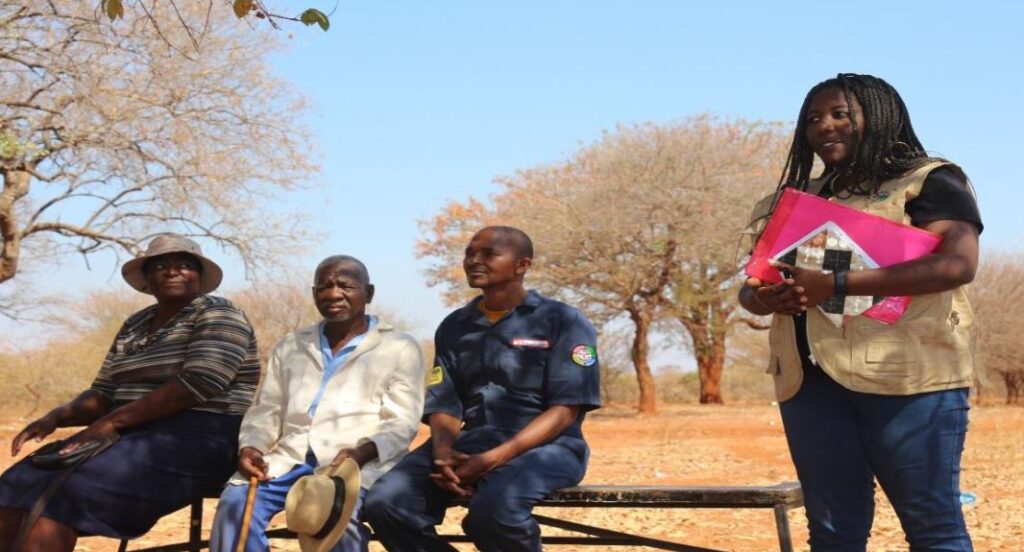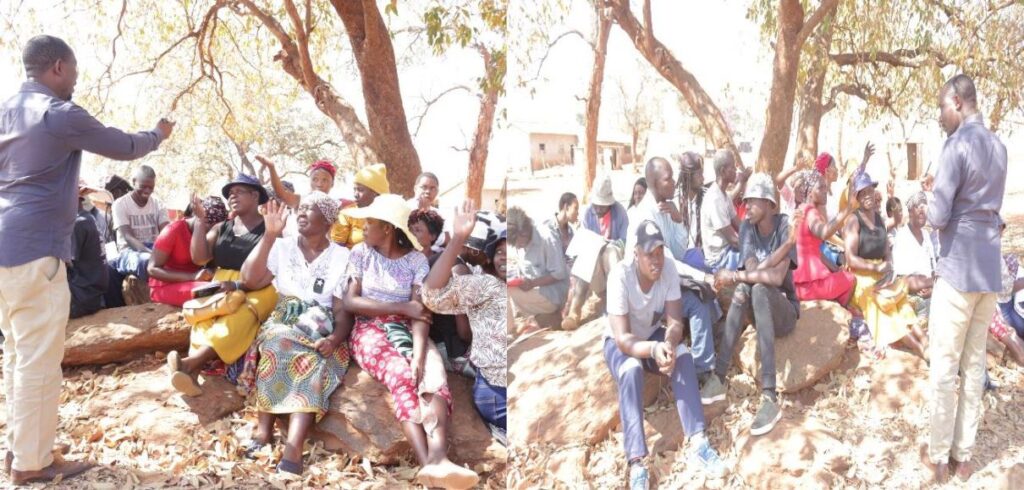WE-Care partners hold a community transformative dialogue to recognize and advocate for UCDW in Bubi District
In a collaborative effort by Bekezela HBC and Padare Men’s Forum to shift community perceptions and attitudes, a community transformative dialogue on recognizing, influencing, and advocating for Unpaid Care and Domestic Work (UCDW) was conducted on July 20, 2024, at Mdutshane Clinic in Bubi District of Zimbabwe. The dialogue was attended by 39 community members (23 women and 16 men) whose profiles included women, girls, traditional leaders, a councillor, members of the Ward Water Point Committee, men, and boys. These individuals were selected based on their roles in the community and their potential to influence change regarding UCDW.

The dialogue aimed to elevate the community’s understanding of UCDW’s contributions to society and explore strategies for advocacy and public and private sector engagement. This initiative took place against a background where, despite UCDW encompassing all the tasks essential for the upkeep of households and the care of family members, it remains significantly invisible and unrecognized in the Mdutshane Community. Consequently, it is mostly shouldered disproportionately by women and girls, affecting their participation in political and economic spaces.
During the conversations, women expressed that their work was often seen as a natural duty and societal expectation rather than a valuable contribution to social and economic development. They noted that traditional gender roles were a significant barrier to the equitable distribution of Unpaid Care and Domestic Work, as men and boys were rarely expected to participate in domestic chores, reinforcing the notion that caregiving is women’s work. Men also highlighted that factors such as the fear of being judged by other men for engaging in “women’s work” and a limited understanding of the importance and value of UCDW were barriers to their involvement. Some men even mistakenly considered artisanal mining as part of Unpaid Care Work due to its inconsistent income generation.
However, men pointed out that with the support of the private and public sectors through investments in Time and Labour-Saving Equipment (TLSEs) such as Tsotso stoves and piped water schemes or the rehabilitation of boreholes, the participation and involvement of men and boys in Domestic Work is likely to increase. The dialogue revealed a shift in perceptions, with many men recognizing the importance of UCDW and expressing a willingness to take on more domestic responsibilities. Community leaders committed to participating in advocacy initiatives to recognize UCDW.

Recommendations from the dialogue
- There was a need for Care Champions and community leaders to raise awareness and strengthen dialogue on UCDW during community events such as village assemblies.
- To encourage the promotion and celebration of men and boys who actively participate in UCDW through media features and by showcasing them as role models in the community.
Action points
- The community will establish an advocacy committee to advocate for UCDW by engaging public and private sector institutions. (The committee will include traditional, political, and religious leaders, community influencers, and care champions).
- Engage trained community members to assist households in constructing Tsotso stoves to increase male participation in preparing and cooking meals for their families.
- To hold a follow-up dialogue to track progress and support the advocacy committee.
The first photo shows Bekezela WE-Care Program Officer Faith Sharleen Nkala addressing ward 20 dialogue participants on the Objectives of the Community Dialogue, while the second photo shows Program Officer Zipho Ndebele engaged in discussions with the dialogue participants on understanding the care agenda. Photos by Bekezela.
